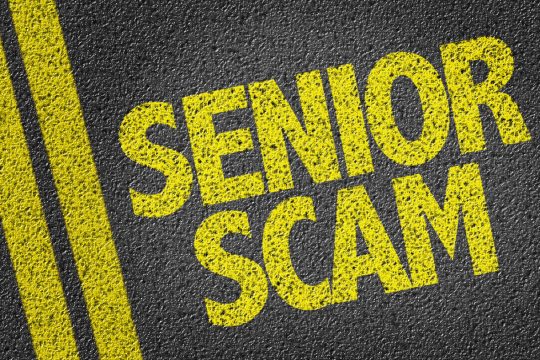
Editorial Note: This article was posted April 23, 2021 as a press release on the AMAC.us website. It was written by AMAC Foundation board member John Grimaldi, and draws attention to the scams and elder fraud situations seniors face, especially during the current COVID pandemic disruptions. This post adds to the AMAC organization’s continuing focus on elder crime, as evidenced by the AMAC Foundation’s recent (March 22-26) article series on the Elder Fraud subject.
WASHINGTON, DC, Apr 23 — It may sound dismissive and insulting to say that the older you get the more susceptible you become to fraud, but a study published in the journal, Annals of Internal Medicine, found that “even cognitively intact older adults can have ‘functional’ changes that may render them financially vulnerable,” according to Rebecca Weber, CEO of the Association of Mature American Citizens [AMAC].
The report goes on to note that the risk increases “dramatically” for those who feel isolated and, as Weber points out, “loneliness, especially for older Americans, has become the routine during the current COVID pandemic.”
The condition is known as Age-Associated Financial Vulnerability, or AAFV, and it is important to note that the study dealt with individuals who were financially competent during their lifetimes. “It doesn’t mean you are getting senile in your old age; it means that it is time to slow down a bit and that you might feel more comfortable by getting ‘a second opinion’ when you are about to make a financial decision,” Weber explains.
The authors of the report say that more research needs to be done in order to better understand who is at risk and why. They concluded that “AAFV is a problem with serious effects on patients, their families, and society. Its roots reside in the curious intersection of several trends, including a rapidly aging society, age-associated changes in the human brain, shifts in the concentration of wealth to older demographic groups, and industry’s adoption of marketing strategies that are increasingly becoming rooted in behavioral economics and cognitive neuroscience.”
Here are some of the more current senior scams that have been reported:
-Beware of offers to get you on a COVID vaccine list or to get an early vaccination for a fee. There is no charge for signing up or getting the vaccine.
-Watch out for fraudsters promising to clean your home as a means of avoiding COVID contamination. They don’t want to clean your home, they want to clean you out.
-Salespersons may contact you with offers of oils, brews and all sorts of fake COVID preventative treatments; there are no such things.
-And then there are the charity scammers. They may ask for a contribution to help out a needy family dealing with the coronavirus or a fake COVID-related charity.
“More than 10,000 American men and women turn 65 each and every day and it’s not unusual, anymore, to see friends and relatives reaching the ripe old age of 100 and beyond. It’s a matter of fact that the older you get the more likely it is that you can become a victim of fraud. So, here’s a suggestion: if and when someone, even a relative or a friend, proposes you make a purchase or an investment of any kind invite a trusted third party for an opinion before you agree. It’s good advice at any age.” says AMAC’s Weber.
Subscribe
Sign Up for Our E-Newsletter!
Stay up-to-date on all of the topics you care about by subscribing to our quarterly newsletter emailed directly to your inbox!
SubscribeSubscribe
Sign Up for Our E-Newsletter!
Stay up-to-date on all of the topics you care about by subscribing to our quarterly newsletter emailed directly to your inbox!
Subscribe